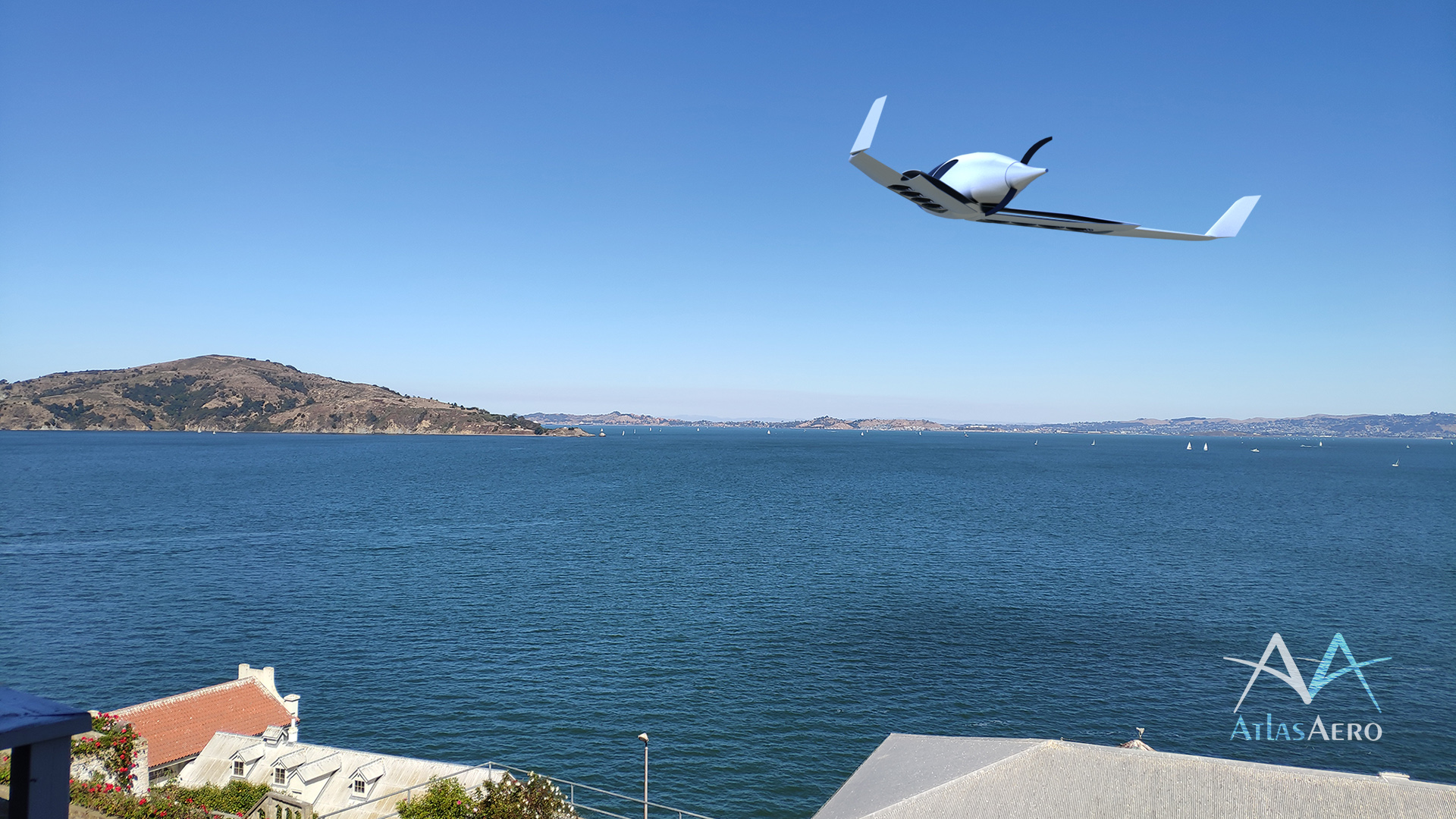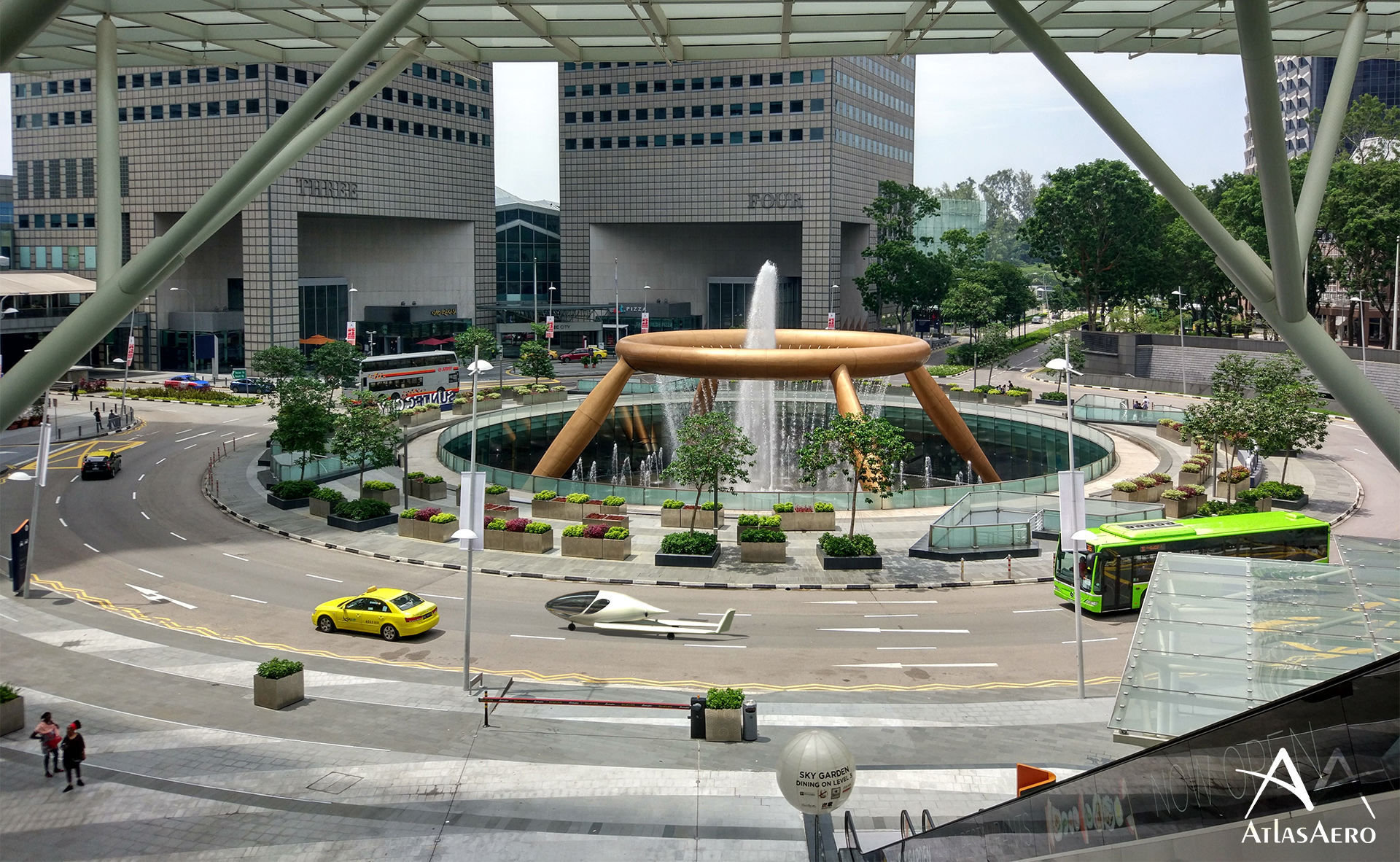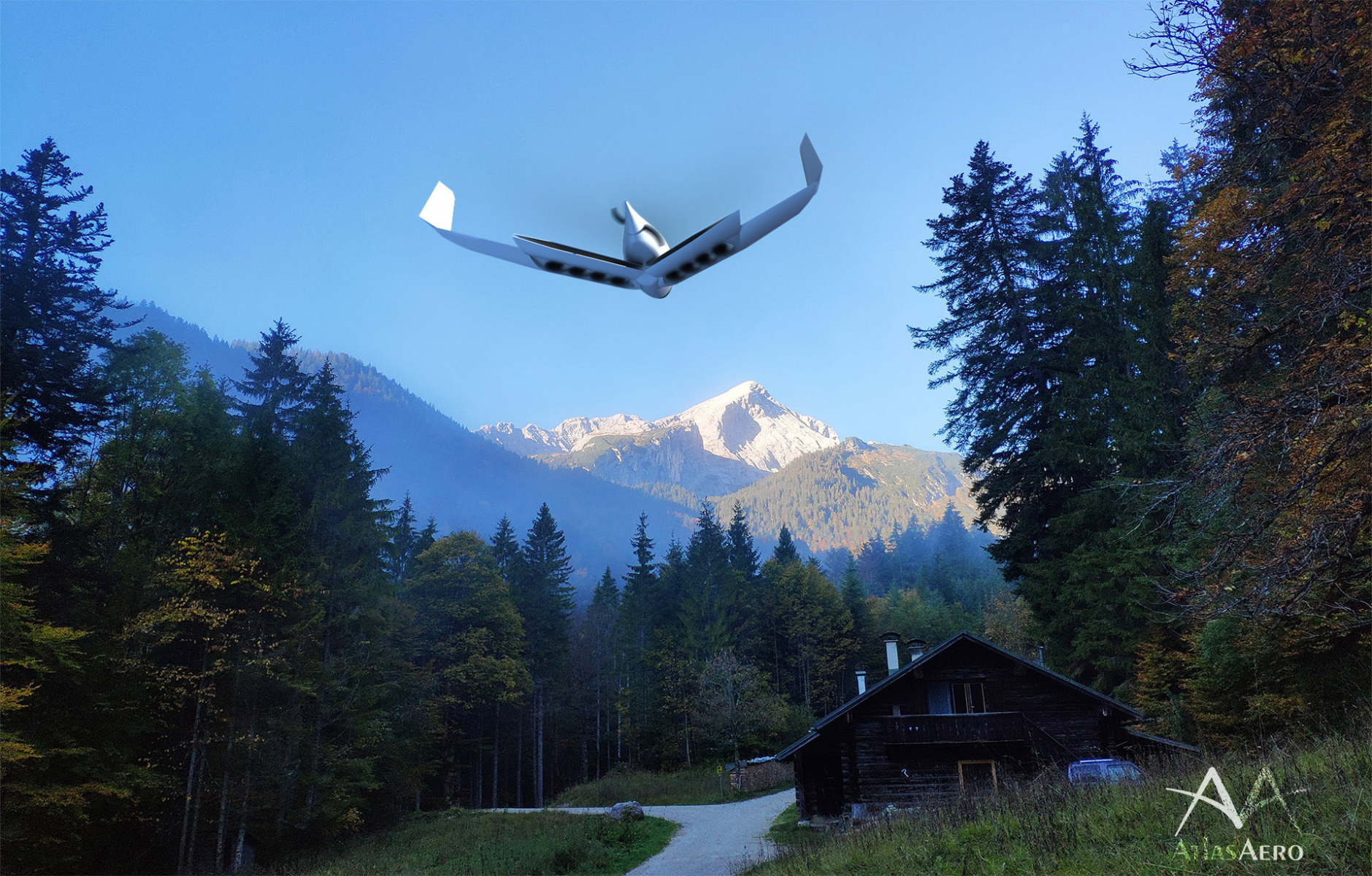Start-up Atlas Aero will reveal a full-scale prototype of Origin, a hybrid-electric personal aircraft with vertical take-off and landing functionality, at IAA Mobility in Munich, Germany, on 7 September 2021. The ESA BIC Bavaria alumnus aims to have a commercial version of Origin ready by 2026.
In development since 2015, Atlas Aero’s Origin has been designed to combine the best features of aeroplanes and helicopters, along with efficient flight, net-zero emissions and space-efficient parking. The two-seater craft is capable of vertical take-off and landing and features folding wings that enable it to convert into a road vehicle.
The origin of Origin
Origin is the brainchild of Maximilian Salbaum, who founded Atlas Aero with his brother, Tobias Salbaum, in 2019 after developing and optimising Origin for 4 years. The company was incubated at ESA BIC Bavaria from 2019 to 2021. The incubation programme enabled Atlas Aero to finance its prototypes and provided coaching and networking opportunities.

“Technological advances during the last two decades are finally enabling a paradigm shift in aviation and Origin is a perfect example of what is now possible,” says Maximilian.
“Furthermore, mass production will result in the cost of simple aircraft like ours falling to around the same price as middle-to-high range electric cars. Our solution will offer far more functionality and travel flexibility for its users.”
New technologies for cost efficiency
Origin is a two-seater (side-by-side) aircraft that the Atlas Aero team say will consume less than 5 litres of fuel per 100 km while travelling at 300 km/h and have a range of up to 1500 km. It will achieve net-zero emissions by using e-Fuels – synthetic fuels produced using renewable energy sources as an alternative to traditional or bio fuels.
Among Atlas Aero’s developments for Origin are new electromechanical actuator (EMA) technology and low-cost, sustainable composite manufacturing, both of which have applications in the space sector.
Similarly, the company is developing a low-cost alternative composite manufacturing process – known as light resin transfer moulding (light-RTM) – for small quantities of single parts, aiming to produce full-scale fans for its prototype within the next few months. This new process could be used as a cost-efficient alternative to current scalable composite manufacturing, which requires a high upfront investment. EMAs can reduce complexity, maintenance and weight compared with hydraulic models. Atlas Aero is developing direct drive EMAs that also minimise single points of failure to make them more acceptable in critical applications, such as rocket nozzles, aerodynamic control fins, locking mechanisms and fuel valves. Its first linear actuator will be implemented in the full-scale prototype’s wing-flap system.

Upwards and onwards
Atlas Aero proved the hover flight concept with a one-seventh scale model during its time at ESA BIC Bavaria. The full-scale, remote-controlled prototype will be on display at the IAA Mobility show and is expected to demonstrate forward flying and the transition phase between hover and forward flight in the first half of 2022.
The intellectual property of Atlas Aero’s concept has been cited multiple times by companies including Porsche, General Electric and Safran.
Initial plans target the market for small helicopters and aeroplanes with the solution, which will offer enhanced mobility on the ground and space-efficient parking thanks to its foldable wings. Later the concept will be scaled up to produce a vehicle that can be used for ride sharing. Atlas also plans to produce a fully autonomous version designed for the mainstream market.
ABOUT ESA SPACE SOLUTIONS
ESA Space Solutions is the go to place for great business ideas involving space in all areas of society and economy. Our mission is to support entrepreneurs in Europe in the development of business using satellite applications and space technology to improve everyday life. ESA Space Solutions is designed to provide multiple entry points such as ESA Business Incubation Centres (ESA BICs), ESA Technology Broker Network, ESA Business Applications Ambassadors and ESA Business Applications programme. Funding typically ranges from €50k to €2M and supports everything from technology transfer, business incubation, Feasibility Studies to large-scale Demonstration Projects.



